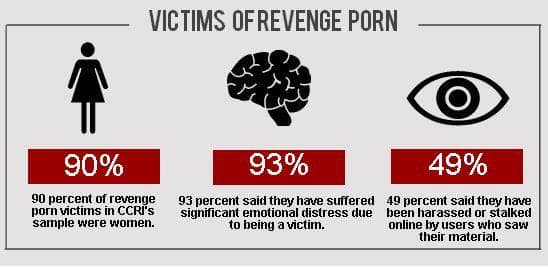The eSafety Commission in Australia recently carried out a survey where it was revealed that one in five women in Australia aged 18-45 suffered image-based abuse, with Facebook and its Messenger app accounting for 53 percent of revenge porn, followed by Snapchat at 11 percent and Instagram at 4 percent. Facebook is trying to put a stop to this revenge porn and put a stop to this online exploitation.
Facebook is now encouraging users to upload nude photos themselves that they would not like to see uploaded on social media. Adults who have uploaded nude or explicit photos and don’t want them to be distributed without their consent can report these images to the Australian government’s eSafety Commission.

The photos are sent via the messenger app. This allows Facebook to flag them and create a unique digital fingerprint. Once flagged, it prevents the distribution of these images on Facebook, Instagram or messenger to put a stop to revenge porn, the most common method of online exploitation.
“We’re using image-matching technology to prevent non-consensual intimate images from being shared,” said Antigone Davis, Facebook’s head of global safety.
Even though it is still only Australia taking part in the initiative, it is said that the UK and the US will also participate in it in the days to come.
“It removes control and power from the perpetrator who is ostensibly trying to amplify the humiliation of the victim amongst friends, family, and colleagues,” eSafety commissioner Julie Inman Grant told AFP. “The precedent already exists for the sharing of child exploitation images and countering violent extremism online, and by extending to image-based abuse we are taking the burden off the victims to report to multiple online platforms,”
Austrailia is the leader among the nations to have taken a step against online exploitation. Its eSafety Commission launched an online portal last month. The victims could report cases where their pictures had been shared on the internet without their consent. The commission then works with search engines and websites to have these taken down.

A pretty novel way of saving an age old problem, isn’t it?


